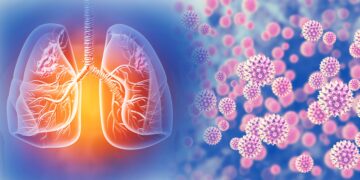SARS-CoV-2 doesn’t just affect the lungs. Many of the symptoms identified in these months – a loss or change of taste and smell, altered state of consciousness, fatigue, myalgia and headache – can indeed be attributable to neurological alterations.
The study ‘Nervous system: subclinical target of SARS-CoV-2 infection’, conducted by a research team from the Department of Neurosciences, Biomedicine and Movement at the University of Verona with the support of Fondazione Cariverona as part of the project Conoscerlo per sconfiggerlo – Alleanza contro Covid-19, sheds light on how the nervous system is so frequently affected in Covid-19 patients.
“The general and neurological clinical data of 123 patients suffering from Coronavirus were compared with NfL (Neurofilament light chains, i.e. proteins that are a biomarker of damage in nervous system fibres) levels, which were measured in the blood of patients using an ultra-sensitive method,” explains Sergio Ferrari, medical director of the section of Neuropathology.
“The results obtained allow us to observe that the neurological symptoms of Covid-19, such as loss or change of taste and smell, altered state of consciousness, fatigue, myalgia and headache, are very frequent in SARS-CoV-2 patients. High NfL levels were found to be statistically correlated with the severity of patients’ general conditions (higher in patients admitted to intensive care), while they were not closely associated with the presence of non-specific neurological symptoms, such as smell and taste disorders. Finally, an increase in serum NfL levels has been found in many patients even in the absence of non-specific neurological manifestations, which demonstrates a frequent subclinical involvement of the nervous system,” says Ferrari.
“The study, conducted entirely in university health facilities in Verona with the fundamental role of the research team comprised of Sara Mariotto, Sara Carta, Silvia Bozzetti, Cecilia Zivelonghi, Daniela Alberti and Salvatore Monaco, is of paramount importance to our understanding of Covid-19, which has had such an impact on our daily lives. The evidence of frequent involvement, including subclinical involvement, of the nervous system suggests that more attention should be paid to the potential extra-pulmonary complications, especially neurological ones, of the new coronavirus disease,” adds Ferrari.






























